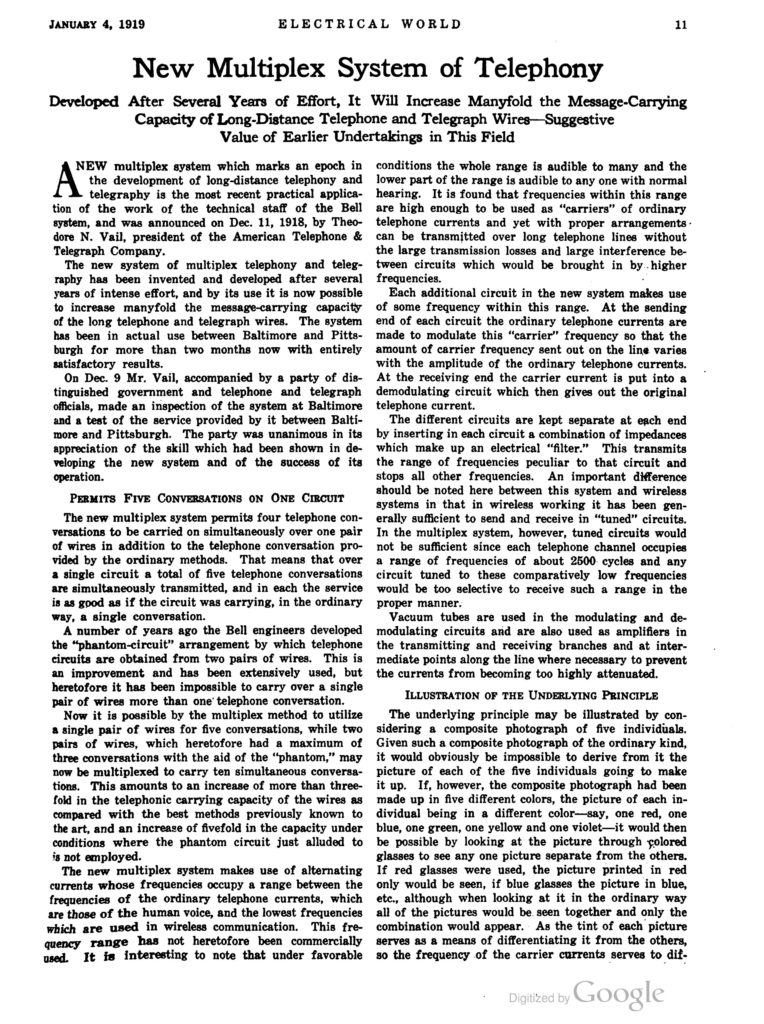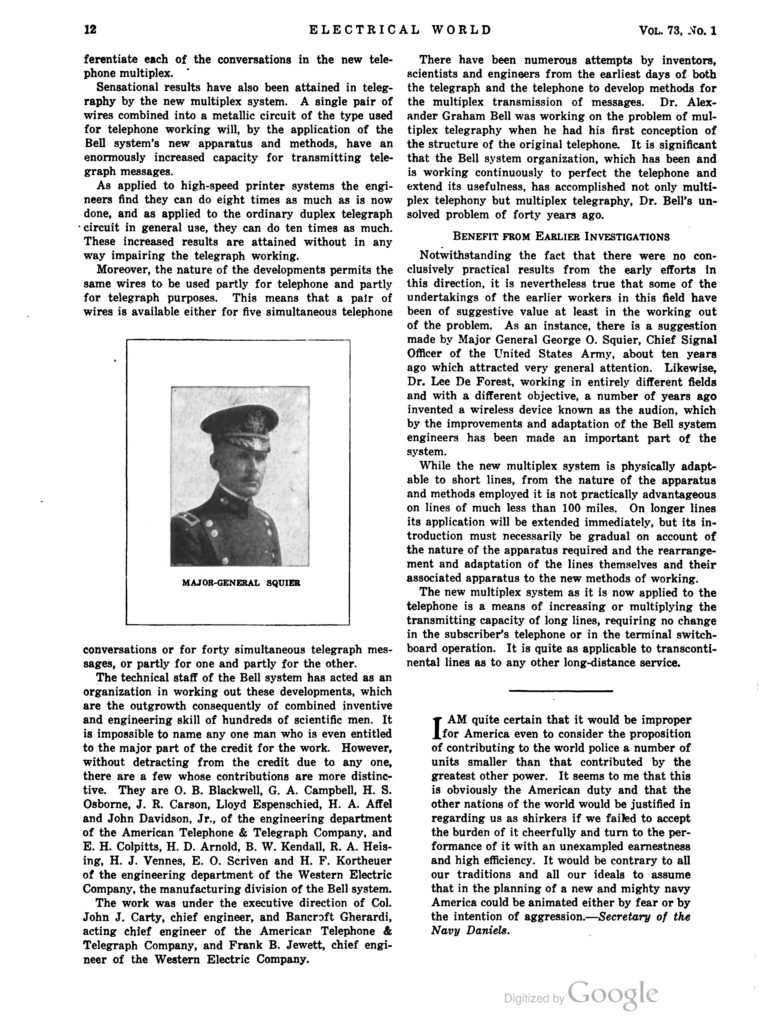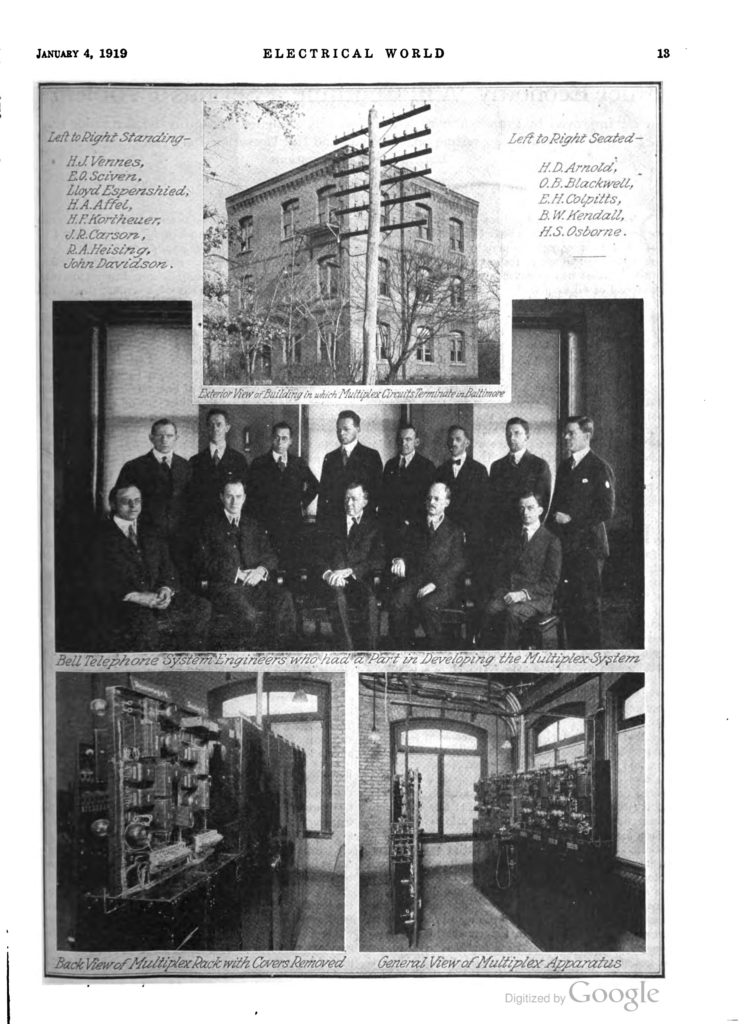An article from the Philadelphia Inquirer on December 23, 1918, carrying Theodore N. Vail’s announcement about the the advent of Multiplex Telephony. The full text of the article is presented below, followed by an article from Electrical World of January, 1919, describing the development and implications of this technology in more detail.
Theodore Vail was president of AT&T between 1885 and 1889, and again from 1907 to 1919.
5 Conversations
On One Pair Wires
Philadelphia Inquirer
December 13, 1918
_______________
Theo. N. Vail Describes Invention of Multiplex Telephony and Telegraphy
_______________
Wires Can Now Be Used Simultaneously for Both Purposes If Desired
_______________
Special to the Inquirer
INQUIRER BUREAU, 1406 G St., N.W.
WASHINGTON, Dec. 12. – The invention and development of a practical system of multiplex telephony and telegraphy are described as of recent accomplishment by Theodore N. Vail, in a letter to Postmaster General Burleson, made public by the latter today.
Mr. Vail said in his letter:
“After several years of intense effort a practical system of multiplex telephony and telegraphy has been invented and developed, by the use of which it is now possible to increase many fold the message-carrying capacity of long telephone and telegraph wires, especially of the open wire type.”
Four Conversations at Once
Mr. Vail said the service had been in operation between Baltimore and Pittsburgh for more than a month.
Under the system four telephone conversations can be carried on over one pair of wires at the same time, in addition to the telephone conversation provided by ordinary methods. Heretofore the best possible over a single pair of wires was one conversation, although a “phantom circuit” arrangement, developed some years ago, enabled three telephone circuits to be obtained from two pair of wires. Now, by the latter device, ten simultaneous telephone conversations are obtainable from the two pairs of wires.
“This represents an increase of more than three fold in the telephone capacity of the wires as compared with the best previous state of the art,” said Mr. Vail in his letter. “And a five fold increase under conditions where the phantom circuit is not employed.”
Sensational Results
Mr. Vail goes on to state that sensational results have also been attained in telegraphy by the new system.
“The nature of the developments,” said Mr. Vail, “is such that if desired wires may be used partly for telephone and partly for telegraph. _____ pair of wires is available either for five simultaneous telephone conversations or for forty simultaneous telegraph messages, or partly for one and partly for the other.”
It is announced that from the nature of the apparatus and methods, the system is not practically advantageous [for] short lines. Its application on lines, however, is to be extended immediately.
____________________
Theodore Newton Vail, at
https://en.wikipedia.org/wiki/Theodore_Newton_Vail
“New Multiplex System of Telephony”, Electrical World, V 73, N 1, January 4, 1919, pp. 11-13.



